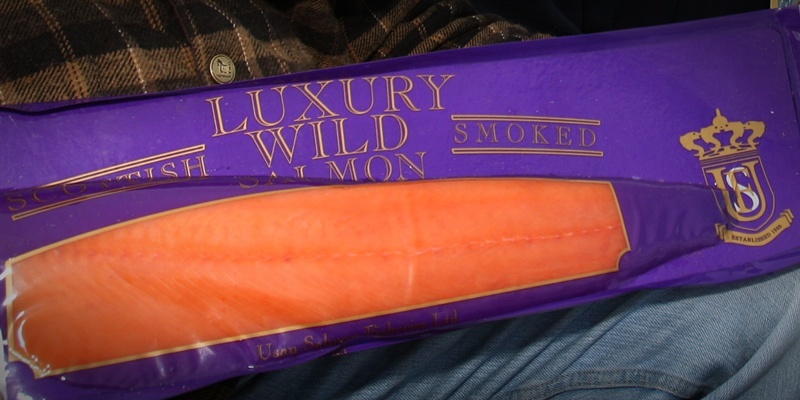A Montrose fishery business has accused the Esk District Salmon Fishery Board (DSFB) and the angling lobby of ”blatant, shameful anti-netting propaganda.”
The furious response followed claims Usan Salmon Fisheries is being allowed by the Scottish Government to ”kill even more fish” as a reward for its cooperation with Marine Science Scotland’s research programme.
The row broke out following the government’s decision to extend the salmon netting season into September and reject proposed conservation measures to delay the start of the netting season for five years.
Usan director George Pullar said the firm was ”appalled by the negative content” of the statement issued by the DSFB.
He said: ”We remain determined to defend our position and refuse to be bullied by those who would seek to have salmon retained for the enjoyment of sport angling rather than enjoyed by all sectors of society as a nutritious food source.
”The age of the Highland clearances is over and the working man has a say we are here to stay.”
He added: ”Our current legal season runs from February 16 to August 31, while the angling season extends to October 31 a far longer period of exploitation than our own.
”It is therefore most surprising that the board should choose to focus criticism on netting in this persecutory and inflammatory manner.
”Interestingly, the recently declared angling catches for 2010 were in excess of 110,000 salmon and grilse, the highest since records began in 1952.
”This therefore begs questions such as where is the shortage of fish and why should only anglers be allowed to catch them?”
Hugh Campbell Adamson, chairman of the DSFB, had earlier said unanimous dismay at the government’s decision was expressed during a packed public meeting in Brechin attended by more than 100 people, including all major wild fish interests as well as local angling associations.
He said: ”Despite the explicit support for controls in May from both Marine Scotland Science and Scottish Natural Heritage the government’s advisers ministers are permitting netting in May.
”We are also perturbed by the Government’s unilateral intention to allow netting in September without any discussions with the board, trust or other stakeholders.”
The board added that Usan Fisheries ”will be able net and kill spring salmon throughout May, many of which are destined for the South Esk, a special area of conservation for salmon.”
They also stated that South Esk is in breach of the European Commission’s habitats directive, in that early-running salmon stocks continue to decline.
The statement continued: ”The Scottish Government is also considering a licensed extension to the South Esk netting season to September 14 for three years from 2012 the statutory close date for netting is August 30.
”Fish killed during this period will represent payment to Usan Fisheries for allowing Marine Science Scotland access for tagging and releasing fish and taking genetic material for research purposes throughout the netting season and the extension.”
Bill Balfour, vice-president of Brechin Angling Club, said: ”It is anathema that the Government should propose that Usan Fisheries be allowed to kill even more fish as a reward for their cooperation with Marine Science Scotland’s research programme.
”Anglers are constantly exhorted by Scottish Government to reduce exploitation through catch and release, and yet it is now actually sanctioning increased exploitation by the nets. This is hardly a consistent approach to conservation.
”Furthermore the proposed research would seem to be of dubious benefit and surely there are better ways of targeting £150,000 per annum.”
A Scottish Government spokeswoman said: ”The Esk District Salmon Fishery Board have been advised of the ministers’ decision on their applications and it would not be appropriate to comment further on the decision.
”In response to ministers’ instructions Marine Scotland will be carrying out a scientific investigation of wild Atlantic salmon and sea trout stocks in the river South Esk and will liaise with the DSFB as local managers and other interested parties as that investigation goes forward.”
